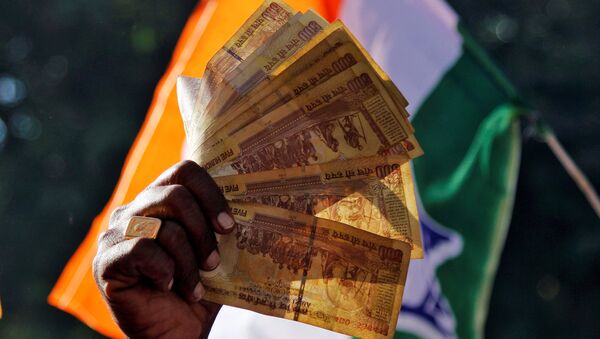The IMF’s annual review called declining consumption and investment activity, as well as tax revenues and a number of other factors impediments to one of the fastest-growing economies in Asia and the Pacific.
According to the government, from July to September, India’s economic growth was the slowest in six years, falling to 4.5 percent. The central bank cut its forecast for 2019 from 6.1 to 5 percent. The Reserve Bank of India has lowered its key lending rate five times this year to a nine-year low, but the economic recession doesn’t stop. In early December, the bank left the discount rate unchanged, causing disappointment and misunderstanding on the part of the IMF.
According to observers, the signs of a US trade war against India this year could have exerted strong psychological pressure on Indian export-oriented companies. The US revocation of India’s preferential trade status has closed the doors for annual exports of up to $5.6 billion worth of commodities to the United States. At the same time, before India’s status was revoked, it had been one of the largest beneficiaries of the US generalized system of preferences.
India is currently trying to regain trade privileges from the United States, apparently counting on export growth, and hence state revenue.
Apparently, India’s economic troubles have made the Indian negotiators on the preparation of the Comprehensive Regional Economic Partnership agreement (RCEP) nervous.
“India-China cooperation under this mechanism could become a potential growth factor for India,” MGIMO expert Ekaterina Arapova said, adding that “India is also benefiting from enhanced collaboration with Asian partners that take part in the RCEP negotiations.”
At the same time, because of the psychological barrier – the fear of an influx of Chinese goods after trade liberalization under the RCEP agreement – Indian partners haven’t yet managed to objectively assess the benefits of participating in this multilateral mechanism for economic development.
According to Yu Lunyuy, Head of the Centre for Indian Studies of Shenzhen University, Chairman of the China Association for the Study of Indian Culture, China has the technology, capital and advanced engineering experience and is one of the few countries that can help India solve its problems.
“In recent years, India has faced many challenges in its economic development. However, the country can really count on the fact that its ties with the BRICS countries will revive its economy. India can solve the crisis through cooperation with China, which has technology, capital and advanced engineering experience. China is one of the world’s few countries that can really help India solve its problems,” Yu Lunyuy said.
“At first glance, the economic recession is a purely economic problem, but in reality it is a complex problem, which also includes politics. A number of recent steps by the Indian government have negatively affected its economic development. If the Indian economy continues to decline, the situation in the country will worsen,” the expert noted.
The Chinese Indologist believes that building trust between China and India will remove barriers in bilateral economic and investment cooperation:
“Indians, especially young people, really want to know more about China, learn from China, and cooperate with China. China and India need to address the lack of trust. That is, China should comprehensively and deeply understand India, and pay great attention to its opinion. At the same time, India should trust itself more and not listen to what the Western media say about China. If India is aware of this problem, it can turn the economic crisis into a chance for development. In the past, China faced various challenges throughout its development, including during the implementation of reform and opening up policies; but in the end, it managed to overcome them. China has vast experience in economic development and deserves India’s attention.”
According to Yu Lunyuy, India’s cooperation with its BRICS partners is a strong driver of growth for the country’s economy:
“Within BRICS, in addition to China, India is developing relations with Russia, Brazil and South Africa. The share of each of these countries in India’s development may not be the same. China and India are the world’s two most densely populated countries, they are developing very quickly. It’s reasonable that there should be more cooperation between them. India’s economic development problems can also be resolved through Sino-Indian-Russian cooperation. In particular, India has advantages in the pharmaceutical industry and agriculture. This is a great opportunity for cooperation with Russia and China, as well as for improving the country’s economy.”
2020 marks the 70th anniversary of diplomatic relations between China and India. The parties plan to hold 70 celebrations, considering them a new chance for developing bilateral contacts.
As Chinese Foreign Minister Wang Yi noted at a meeting with Venkaiah Naidu, the Vice President of India, Chairman of the Council of States, the successful second informal meeting of the two countries’ leaders in Chennai has set the vector for cooperation development.




